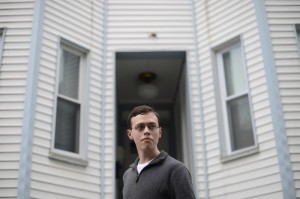Saving Lives, One Hedge Fund at a Time
-
-
slice.mit.edu
- 1
Filed Under
Recommended

Was it somewhere in the depths of his master’s research on “coiled coils and their oligomerization states”? Did an epiphany strike while he was knee-deep in formulas at a Putnam Mathematical Competition, where he consistently earned honors?
It’s a good guess that traveling with the MISTI-China program contributed to some of Trigg’s working knowledge of problems in the world and how best he might help.
The profile of Trigg’s nontraditional approach to saving the world has sent shockwaves through the non-profit sector this week, sparking zealous rebuttals from pundits and columnists and reinvigorating debates about Peter Singer’s moral philosophy, one Trigg cites as influential.
Anyone who has enrolled in a MISTI (MIT International Science and Technology Initiatives) program will recognize Trigg’s dilemma, though. In countries across the world each year, from Mexico to Israel to China, MISTI interns apply their talents with code, conservation, or entrepreneurship to tackle global problems.
No wonder that, coming out of college, they want to continue to be effective. This year’s graduates, though, face a similar hurdle that Trigg faced three years ago: a down economy. The unemployment rate for Americans aged 20-24 in April was 13.1%.
Trigg took a job he was qualified for and that paid well. As for saving the world, he enables others to do that work, curating his beneficence through GiveWell and other do-good clearinghouses that he knows will make the most difference. In his case, it’s the Against Malaria Foundation, where each $3 net he buys protects an average of two people from contracting the deadly disease.
“A lot of people, they want to make a difference and end up in the Peace Corps and in the developing world without running water,” Trigg told the Washington Post, “and I can donate some of my time in the office and make more of a difference.”
GiveWell, incidentally, is powered by data from MIT’s Jameel Poverty Action Lab, which analyzes the effectiveness of programs in developing countries around the world.








Comments
Linda Perry
Thu, 07/25/2013 5:18pm
I find it sad that Americans whether private individuals or UN supporters send money overseas when so many right here in the country that sustains them and defends them are hungry or live precariously.